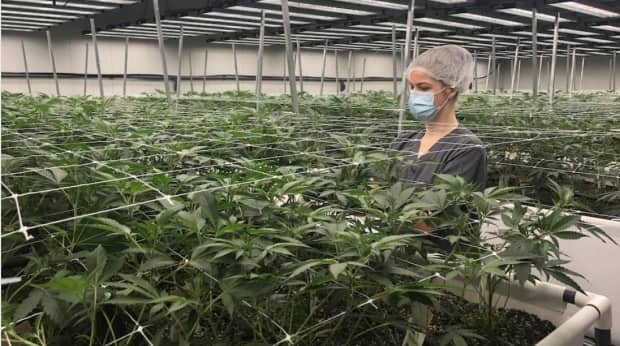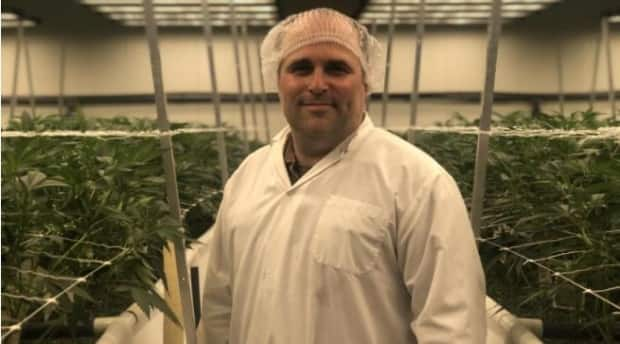More than 2 years after legalization, Quebec's cannabis industry lags behind

Though the Société québécoise du cannabis (SQDC) doubled its profits last year and claims to have taken over half of the province's black market, some Quebec cannabis producers say they are still struggling to make money compared to those in other parts of the country.
According to the latest available data, published in 2019, Ontario's cannabis industry is valued at three times more than that of Quebec. Where Ontario's is estimated to be worth $3 billion, Quebec's is less than $800 million.
According to Philippe Laperrière, owner of Fuga cannabis in Stoneham, Que., a large part of the reason for that is the lack of funding available to cannabis growers in Quebec.
"If you go into this for the money and to make a profit, you're on the wrong track. The obstacles in your way are numerous and you have to find the money to start," Laperrière said.
Investissement Québec has subsidies available for medical cannabis producers, but only once they obtain a permit from Health Canada. So far, no project has received funding from those subsidies.
And financial institutions are just as hesitant when it comes to loaning money to the businesses.
Fuga is currently working on getting its first products on the market, but some other startup efforts that promised hundreds of jobs — including two of three announced in Lac-Saint-Jean and another in the Charlevoix region — have given up.
"We have to stop putting our heads in the sand at some point and assume there's a lucrative industry for the government," said Laperrière.
There are currently 81 authorized cannabis producers in Quebec. That's less than half the number of producers in Ontario, and less than British Columbia — which has the second-highest number of producers in the country.
Jean-François Ouellet, a finance professor at HEC Montréal, says the Quebec government's tough messaging on cannabis doesn't help.
"In Quebec, we had everything we needed to become an important industry player: we have space, electricity, and partying is in our DNA," said Ouellet. "But when the CAQ came to power, we were sent a strong message that cannabis was an evil imposed by the federal government."

Quebec is the only province where the legal age for consuming cannabis is 21. It's also the province with the lowest number of prescriptions given for medical marijuana.
Out of the 377,024 prescriptions given in Canada, 21,692 were from Quebec. The Collège des médecins says that is because the Quebec government's regulations for health-care professionals in the province are a lot more strict than the regulations elsewhere.

Marc-André Brissette-Hébert, president of Clinique Solution Cannabis Médical, is concerned that the stern approach to cannabis in the province has some self-medicating at the SQDC or the black market instead of inquiring about medical cannabis with their health professionals.
"My biggest concern is that the SQDC are patting themselves on the back with their good sales, but how many of those people go there for medical reasons and are not going to the right place?" asked Brissette-Hébert.
"What happens also is the exodus of our medical clientele to clinics and producers in other provinces because it isn't permissive enough here."
Brissette-Hébert says if Quebec is going to catch up with other provinces, it needs to make more of an effort.

